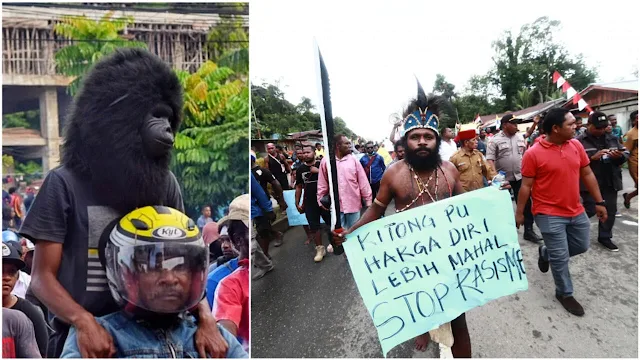The Prejudice That Kills: A Cry from West Papua
Ignorance breeds fear, and fear, when left unchecked, becomes hatred.
Time and time again, we have seen how those who do not understand something choose not the path of learning, but the path of judgment. Instead of asking questions, they form prejudices. They take the easy way out—mocking, labeling, excluding.
This is the reality faced by Papuans every day in Indonesia.
For many Indonesians, Papuans are seen as *the other*—strange, backward, uncivilized. This view is not incidental. It is embedded in the national psyche, normalized through decades of colonial-style education, media representation, and state propaganda. And uprooting it—tearing out this deep-rooted racism—requires courage. It requires the will to confront an uncomfortable truth: Indonesia, a nation that prides itself on unity in diversity, has systematically dehumanized and excluded its own Black citizens.
To this day, racism against Papuans remains a taboo subject. It is whispered in corridors, but never addressed in policy. The Indonesian state has never once acknowledged the existence of systemic discrimination against Papuans. Not once. And when Papuans dare to speak out—when we name the beast—we are punished. Criminalized. Silenced.
Victor Yeimo, a leading voice against racism, has been imprisoned not for any crime, but for having the audacity to speak the truth. For demanding dignity. For daring to say, “We are human too.” And he is not alone. Many Papuans who raise their voices are swiftly branded traitors, rebels, troublemakers.
Today, we see yet another episode in this long tragedy. In Wamena, the indigenous people are rising up against the construction of a new governor’s office in Molama—a so-called development project that tramples on ancestral lands without genuine community consent. The government insists that the plan has been approved by local leaders. But who are these “leaders”? A handful of handpicked chiefs, co-opted by Jakarta, whose voices do not reflect the will of the people.
The truth is clear: this project, like many others, is just another colonial imposition dressed up as progress. It ignores Papuan customs, Papuan land rights, Papuan lives.
And this is not an isolated incident. It is part of a larger machinery of erasure.
Just a few days ago, at a book review in Jakarta, an Indonesian priest asked me, “Is there still hope for reconciliation and justice in Papua?”
I looked him in the eyes and answered without hesitation:
“Reflecting on 60 years of Indonesian occupation in West Papua, we Papuans have absolutely no future with Indonesia. None. We will vanish—destroyed by policies masked as development, crushed by militarization, erased by demographic flooding and cultural genocide. That is a fact. The data is overwhelming. And I will stand by that statement with my life. Everything I say is backed in the pages of my published works, supported by hard evidence, by history, by lived experience.”
Indonesia’s Special Autonomy Law, its so-called “development” plans, and its strategy of provincial expansion are not signs of reconciliation. They are tools of colonization.
What we are witnessing is not just injustice. It is annihilation.
And if the world does not act—if Indonesians do not awaken—the Papuan people may disappear from the land of our ancestors, not with a bang, but with the silence of complicity.
Let this be our cry.



Komentar
Posting Komentar